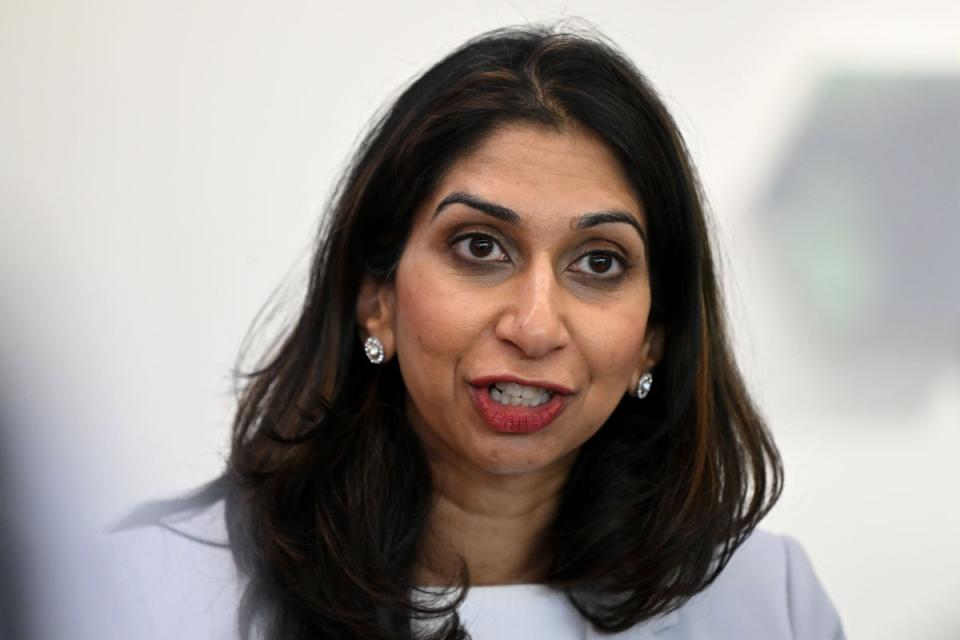Suella Braverman: stop making people feel guilty for being white
Suella Braverman has said white people should not be made to feel guilty for being white, amid claims the countryside is racist.
The former home secretary said it is wrong and dangerous to suggest the countryside is not welcoming to ethnic minorities because it is predominantly white.
And she said it is “wholly disempowering” for non-white people to be judged by their skin colour rather than “by character”.

Ms Braverman, who was sacked as home secretary in November, was responding to a report by charity Wildlife and Countryside Link which said a perception that green spaces were “dominated by white people can prevent people from ethnic minority backgrounds from using [them]”.
Writing in the Daily Telegraph, Ms Braverman said: “This [view] is not just wrong but dangerous. We need to stop making white people feel guilty for being white.”
She added: “It’s wholly disempowering for ethnic minorities to be judged by skin colour rather than by character.
“Why cast me as a victim and rob me of my agency? Why foster resentment? The truth is that so many people are terrified to challenge this groupthink which is taking over our country.”
Ms Braverman claimed people are frightened of losing their jobs if they challenge the “groupthink” of white privilege and unconscious bias awareness. “Best just keep your head down, they think,” she added.
And she warned that if Labour wins the next election Britain would be overrun by “self-censured identikit automatons who parrot the same Orwellian newspeak”.
It is the former home secretary’s latest foray into the so-called culture wars, having been sacked for accusing Metropolitan Police chiefs of bias in their handling of pro-Palestine protests.
She has railed against migrants crossing the English Channel in small boats and previously included on a list of people she dislikes the “Guardian-reading, tofu-eating wokerati”.
In her Telegraph article, Ms Braverman said it is “essential” to “relentlessly” challenge “Left-wing identity politics”.
“It’s a symptom of a deeper problem within our society – the urge to constantly view everything through the lens of race or gender, plead victimhood and point the finger at an oppressor,” she said.


